India’s gay sex ruling could help legalise homosexuality in Kenya
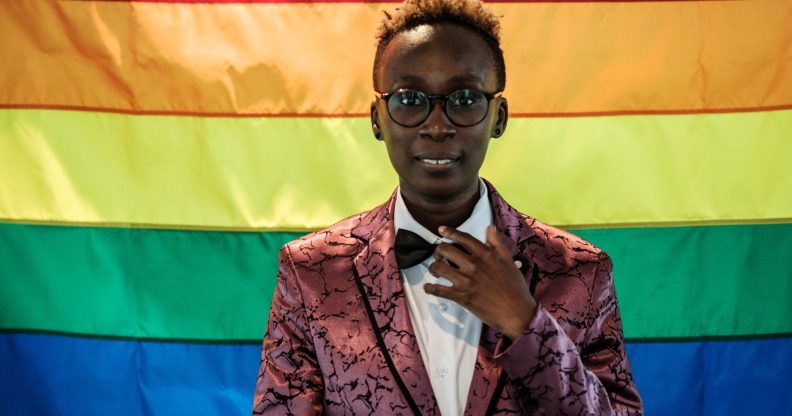
Yvonne Oduor, Gay and Lesbian Coalition of Kenya operations officer, at a UN event (YASUYOSHI CHIBA/AFP/Getty)
Kenya’s High Court will hear arguments based on India’s decriminalisation of homosexuality earlier this month as it considers overturning its own gay sex laws.
India’s Supreme Court was unanimous in its decision to overturn the ban on consensual same-sex relations, which was previously punishable by a sentence up to life in prison under the 157-year-old law.
And now, Kenya could follow suit. Parties for and against decriminalisation will be allowed to refer to the Indian ruling in their submissions before the High Court on October 25. The proceedings could potentially overturn the 120-year-old Section 162 and Section 165 laws.
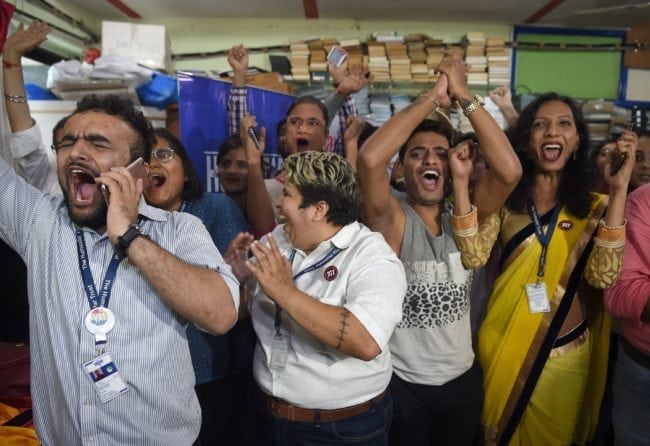
Campaigners in India celebrate the decriminalisation of homosexulity (INDRANIL MUKHERJEE/AFP/Getty)
Last week, the High Court overturned its government’s ban on lesbian film Rafiki so it can be submitted for Academy Awards consideration — and it has been playing to sold-out crowds.
This latest decision has raised hopes that the east African country of around 50 million could become a beacon of hope on a continent which still largely bans homosexuality.
The court’s constitutional division allowed comparisons to be drawn between India and Kenya’s laws against “sexual acts against the order of nature” because they come from the same root: British colonialism.
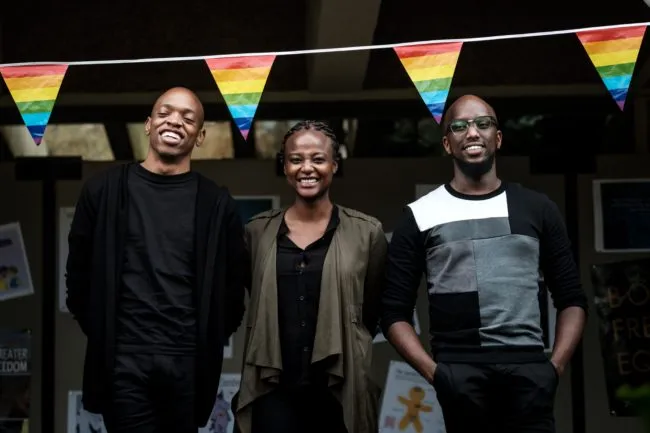
Kenyan campaigners are seeking to follow India’s example (YASUYOSHI CHIBA/AFP/Getty)
Kenyan opponents of the law, which can lead to a 14-year prison sentence for those found guilty, argue that it means queer people have no protection from being abused, assaulted, raped and even turned into slaves, according to Reuters.
They also say it is used to discriminate against LGBT+ people in a number of areas, from employment and education to housing and health.
Charles Kanjama, a lawyer for parties against decriminalisation, said: “Kenyan courts are bound only by decisions of higher courts in Kenya, but decisions of foreign courts can be persuasive. They don’t have to be adopted.”
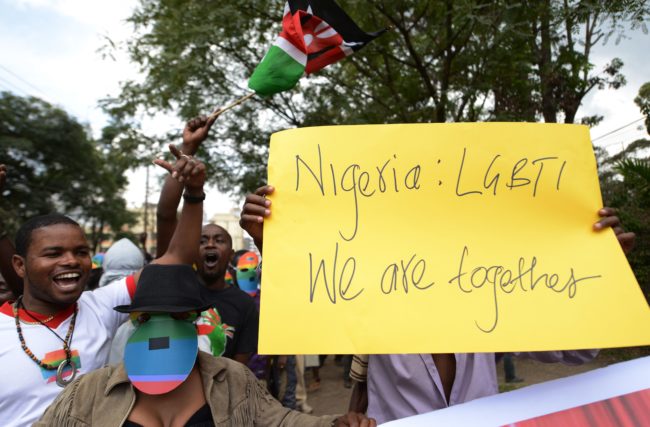
A positive result for LGBT+ advocates would be momentous (SIMON MAINA/AFP/Getty)
He also commented on the news that screenings of Rafiki were raucous celebrations of the lesbian love story, as the film was greeted with huge applause from the audience at Prestige Cinema.
The crowd also reportedly “laughed and booed” at the logo of the Kenya Film Classification Board — the body that suppressed its release.
And demand for the movie was so high that the cinema quickly upped the number of planned screenings, opening a second screen to cater to the influx of moviegoers.
Kanjama said: “The views of that proportion of the population that watch it are unlikely to change, because those may be part of the three or four percent who already have very ambivalent views about this issue.”
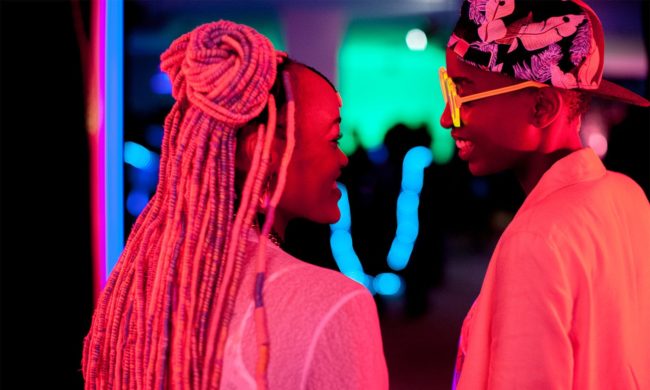
The two main characters in Rafiki look at each other (Rafiki)
But audience members who came to see Rafiki lavished it with praise, with one called Daisy Oriri saying: “It is really a victory… This is the kind of movie that makes it possible for mentalities to evolve, that makes people understand that we have rights and that we are human beings.
“It was a beautiful movie, it tells a part of my life.”
The bitter irony of the film’s international critical success despite the hostile reaction within Kenya was not lost on the movie-goers.
Mbithi Masya said: “This is the first Kenyan movie in history to get such international recognition. It is crazy to think that it was forbidden in its own country.”

